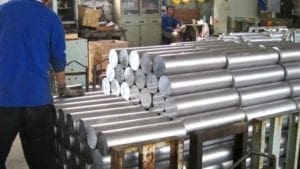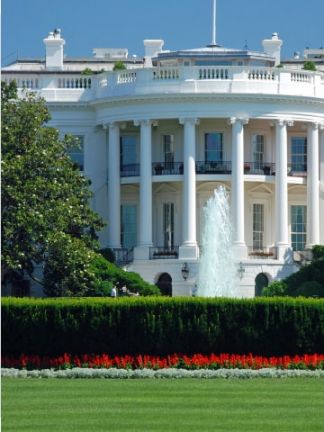Aluminum Industry Wants Tax Deal, but Nobody Wants to Cut the Red Tape
Aluminum Industry Wants Tax Deal, but Nobody Wants to Cut the Red Tape
This article was featured in our weekly newsletter, the Liberator Online. To receive it in your inbox, sign up here. Many think of crony capitalism as the source of all problems we face as a nation. They are not entirely wrong. Take the domestic aluminum industry for instance. Despite the taxpayer investment, producers are losing their share of the market. Without freedom to compete, members of the industry take part in political games, using their influence with state governments and Washington politicians to beg for privileges that no other aluminum producers enjoy. The result? Major trouble for the consumer, employer, and worker. In America, there are three companies that produce primary aluminum. Alcoa is the largest producer, operating multiple primary plants in New York, Washington, Indiana, and Texas.
In early November 2015, Alcoa announced that it would have to permanently close its Massena West smelter in New York. At the time, town supervisor Joe Gray said that the jobs Alcoa would take away if the smelter closed would be “next to impossible to replace,” considering the aluminum giant has been the major employer in the region for quite some time.
By late November, however, a deal was reached and the upstate New York smelting plant was saved. What happened? New York Governor Andrew Cuomo unveiled a $69 million incentive package that benefited Alcoa. At least 600 jobs were saved.
The plan was backed by Cuomo and Sen. Charles Schumer (D-NY), who made the announcement at the Alcoa plant in Massena. As union bosses celebrated the special relationship between the New York government and industry leaders, the incentives weren’t widely criticized, mainly because tax incentives aren’t seen as handouts by many. Instead, people often believe that tax incentives are good.
During the announcement event, Cuomo claimed that the incentives plan “is the state’s way of stepping up.” Yet none of those present were able to criticize the existing red tape that makes it so hard for companies to function in America in the first place.
If the cost of doing business in the country was not an obstacle, more competitors would fill up the gap, and cheap aluminum coming from China would have a hard time staying relevant. Instead of working to remove red tape and help all entrepreneurs and existing businesses to flourish, the state decided to give one group access to privileges that others in the same industry simply do not enjoy.
But as Alcoa enjoys the $30 million it got from the New York incentive package, things continue to look bad for the aluminum producers and its employees. Except now, the issue is not New York, it’s Indiana.
According to IndyStar.com, southwestern Indiana residents are now concerned that the Alcoa smelter in their state will shut down, shedding 600 jobs in the process. Early in January 2016, Alcoa announced it would be closing its Warrick Operations smelter by the end of March. This is a “major economic event,” said Warrick County Chamber of Commerce director Shari Sherman. But to Alcoa, the shutdown makes sense because the Indiana facility is not “competitive.” Meaning the cost of keeping it open is a burden.
The facility has been operating in Indiana for the past 55 years. As the smelter closes, multiple families brace for the impact. As workers struggle, so do companies that are finding it much harder to compete. The issue? They have a hard time covering the costs of doing business in America.
If workers and consumers are serious about seeing fewer job losses in their states and more prosperity, they’d be urging lawmakers to cut the red tape, not backroom deals.
In America, there are three companies that produce primary aluminum. Alcoa is the largest producer, operating multiple primary plants in New York, Washington, Indiana, and Texas.
In early November 2015, Alcoa announced that it would have to permanently close its Massena West smelter in New York. At the time, town supervisor Joe Gray said that the jobs Alcoa would take away if the smelter closed would be “next to impossible to replace,” considering the aluminum giant has been the major employer in the region for quite some time.
By late November, however, a deal was reached and the upstate New York smelting plant was saved. What happened? New York Governor Andrew Cuomo unveiled a $69 million incentive package that benefited Alcoa. At least 600 jobs were saved.
The plan was backed by Cuomo and Sen. Charles Schumer (D-NY), who made the announcement at the Alcoa plant in Massena. As union bosses celebrated the special relationship between the New York government and industry leaders, the incentives weren’t widely criticized, mainly because tax incentives aren’t seen as handouts by many. Instead, people often believe that tax incentives are good.
During the announcement event, Cuomo claimed that the incentives plan “is the state’s way of stepping up.” Yet none of those present were able to criticize the existing red tape that makes it so hard for companies to function in America in the first place.
If the cost of doing business in the country was not an obstacle, more competitors would fill up the gap, and cheap aluminum coming from China would have a hard time staying relevant. Instead of working to remove red tape and help all entrepreneurs and existing businesses to flourish, the state decided to give one group access to privileges that others in the same industry simply do not enjoy.
But as Alcoa enjoys the $30 million it got from the New York incentive package, things continue to look bad for the aluminum producers and its employees. Except now, the issue is not New York, it’s Indiana.
According to IndyStar.com, southwestern Indiana residents are now concerned that the Alcoa smelter in their state will shut down, shedding 600 jobs in the process. Early in January 2016, Alcoa announced it would be closing its Warrick Operations smelter by the end of March. This is a “major economic event,” said Warrick County Chamber of Commerce director Shari Sherman. But to Alcoa, the shutdown makes sense because the Indiana facility is not “competitive.” Meaning the cost of keeping it open is a burden.
The facility has been operating in Indiana for the past 55 years. As the smelter closes, multiple families brace for the impact. As workers struggle, so do companies that are finding it much harder to compete. The issue? They have a hard time covering the costs of doing business in America.
If workers and consumers are serious about seeing fewer job losses in their states and more prosperity, they’d be urging lawmakers to cut the red tape, not backroom deals.

Alice
Author
Advocates for Self-Government is nonpartisan and nonprofit. We exist to help you determine your political views and to promote a free, prosperous, and self-governing society.
What do you think?
Rate the degree to which government authorities should intervene on this issue:
Unlikely
Most likely
Subscribe & Start Learning
What’s your political type? Find out right now by taking The World’s Smallest Political Quiz.


























